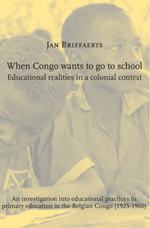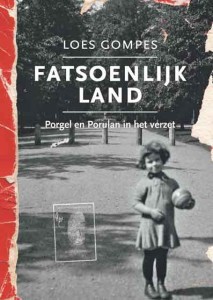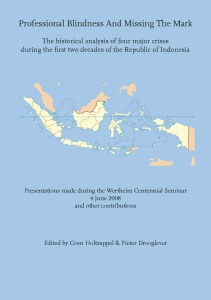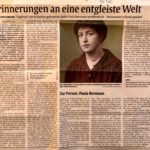Fatsoenlijk land ~ Inhoudsopgave
Fatsoenlijk land – Porgel en Porulan in het verzet van Loes Gompes Het boek verscheen in 2013 bij Rozenberg Publishers – ISBN 978 90 361 0350 3 – Met DvD van de documentaire Fatsoenlijk land (Lumen Film – 60 min.)
Nu online:
Proloog ~ Verzet in twee werelden
Athene, Rome en Jeruzalem in Alkmaar
De Duitse inval en het ontslag van de vaders
De PP-groep
De onderduikers
De Vrije Groepen Amsterdam
Porgel en Porulan in documenten en voedsel
Bevrijding
Bevrijding – Foto’s Jan Hemelrijk
Epiloog
Dankwoord
Jan Hemelrijk gaf de groep de naam PP-groep. Dat gebeurde bij de oprichting van de Vrije Groepen Amsterdam (VGA) in 1944 toen elke groep een naam moest kiezen. Je zou kunnen denken dat het een verwijzing is naar Potasch en Perlemoer, de twee kibbelende joodse zakenlieden uit de bekende gelijknamige vooroorlogse volkskomedie. Maar dat was niet het geval. Jan liet zich inspireren door de ‘porgel’ en de ‘porulan’, fantasiebeesten in het clandestien verschenen nonsensrijm De Blauwbilgorgel (1943) van Cees Buddingh’.
De blauwbilgorgel
Ik ben de blauwbilgorgel,
Mijn vader was een porgel,
Mijn moeder was een porulan,
Daar komen vreemde kind’ren van.
Raban! Raban! Raban!
Ik ben de blauwbilgorgel,
Ik lust alleen maar korgel,
Behalve als de nachtuil krijst,
Dan eet ik riep en rimmelrijst.
Rabijst! Rabijst! Rabijst!
Ik ben de blauwbilgorgel,
Als ik niet wok of worgel,
Dan lig ik languit in de zon
En knoester met mijn knezidon.
Rabon! Rabon! Rabon!
I
Ik ben de blauwbilgorgel,
Eens sterf ik aan de schorgel,
En schrompel als een kriks ineen
En word een blauwe kiezelsteen.
Ga heen! Ga heen! Ga heen!
Cees Buddingh’ (1918 – 1985)
Professional Blindness And Missing The Mark ~ The Historical Analysis Of Four Major Crises During The First Two Decades Of The Republic Of Indonesia
Now complete online: Professional Blindness And Missing The Mark ~ The Historical Analysis Of Four Major Crises During The First Two Decades Of The Republic Of Indonesia.
This book contains six captivating articles about decisive moments in the first two decennia of the Republic of Indonesia’s existence (1945-1965); one per chapter with an introduction. They were presented at the memorial in honor of Professor dr. Wim Wertheim’s centennial birthday in 2008 – the doyen of post-war Dutch Indonesia research.
Each chapter explores a significant event from that era and was written by experienced researchers – Mary van Delden, Saskia Wieringa, Ben White, Pieter Drooglever and Coen Holtzappel – making use of source material that for the most part has been neglected by previous research. The analyses of the material reveal the new Republic’s struggle to bring together, and keep together, the colonial heritage of the Dutch East Indies in one independent and productive Republic of Indonesia. The foundation of a domestically, across the archipelago, and internationally accepted national government, as well as obedient regional governments and obliging armed forces, were deciding factors in this struggle.
Violent confrontations between armed forces and the communist party PKI took place in 1948 during the Indonesian National Revolution, as well as in 1965 after the Republic had already been independent for 14 years. The dividing issue was the power balance between politics and army top in state, government and land. A rigorous break with the past was made in 1965, which saw the installation of a junta regime under the leadership of General Soeharto that stayed in place for the following 32 years. Democracy had to wait until the army top made sure every part of politics and armed forces was finely adapted to work with the other. Not until then would the clock of government, production and control be fully set.
The articles reveal a blind spot in Western research of Indonesian developments in the discussed period; research that from 1965 onward was further, and permanently, influenced by the Indonesian army’s view. The Cold War raged domestically as well as abroad.
CONTENTS
Coen Holtzappel – Preface
Mary van Delden – Internees from the Republic
Coen Holtzappel – The year 1948 and the Madiun affairs, a year of cheat and rumours
Pieter Drooglever – Papua Nationalism. Another blind spot
Coen Holtzappel – The Thirtieth September Movement of 1965, as viewed by the perpetrators – Part One
Coen Holtzappel – The Thirtieth September Movement of 1965, as viewed by the perpetrators – Part Two
Coen Holtzappel – The Thirtieth September Movement of 1965, as viewed by the perpetrators – Part Three
Saskia Eleonora Wieringa – Sexual Slander And The 1965/66 Mass Killings In Indonesia: Political And Methodological Considerations
Ben White – The anthropologist’s blind spot: Clifford Geertz on class, killings and communists in Indonesia
Coen Holtzappel & Pieter Drooglever – Postscript
About the authors
Jan Briffaerts – When Congo Wants To Go To School. Educational Realities In A Colonial Context
Rozenberg Quarterly will publish on paper and online:
Jan Briffaerts – When Congo wants to go to school. Educational realities in a colonial context. An investigation into educational practices in primary education in the Belgian Congo (1925-1960) – Pb – 420 pag. – € 39,50 – ISBN 978 90 3610 144 8 – 2014
The education system in the Congo was widely considered to be one of the best in colonial Africa, in particular because of its broad reach among the Congolese youth. At independence however, the wake-up call was brutal as soon it became clear that the colonial educational system had neglected to form an educated class of people able to cope with administrating one of Africa’s biggest and economically most important countries. To be able to understand the mechanisms and effects of missionary education it is most enlightening to go back to the classroom and investigate the everyday reality of school. What did missionary education do exactly, how did it work, what did it teach, and how did it relate to its subjects, the children of the Congo?
This study gives clear insights into the everyday realities of colonial education. It is the result of historical research into educational practices and realities in catholic missionary schools in the Tshuapa region, located in the south of the Congolese province of Equateur. It is based on a rich array of historical source material, ranging from missionary archives and mission periodicals through to contemporary literature and interviews with missionnaries and former pupils who experienced colonial education themselves. The title, “When Congo wants to go to school… ” refers to one of many articles published in Belgian mission periodicals on the subject of the education and civilisation work carried out by missionaries in the Belgian colony.
The complete book now online:
Introduction & A Few Preliminary Remarks
Educational Organisation In The Belgian Congo (1908-1958)
The Missionaries And The Belgian Congo: Preparation, Ideas And Conceptions Of The Missionaries
Catholic Missions In The Tshuapa Region
Part II – Realities
The Educational Climate
Educational Comfort
The Subject Matter
Educational Practices
Part III – Acti Cesa
The Short Term: Reactions
The Long Term: Memories
As Justification And Conclusion
Appendices & Bibliography
When Congo Wants To Go To School – Introduction & A Few Preliminary Remarks
 The research project that formed the foundation for this study grew from a few existing lines of research. On the one hand it relates to research on the so-called Belgian civilisation project in the Congo, on the other to research into the micro-history of education in Belgium. Both my promoter and I have some experience in research into colonial education. Marc Depaepe’s work on the colonial phenomenon grew out of a representative, personal connection to it. As with many Flemish people, the colonial past was a part of his family history. The letters from his great aunt, Sister Maria Adonia Depaepe, a missionary in the Congo between 1909 and 1961, which he later published, are a testimony to this.[1] Her personal documents were published as part of a project on the history of education, more specifically the missionary action of the Belgians in the former colony. The result was a general study at a macro level based on the theory of historical education, focussing in on the educational policy and institutional development of colonial education.[2] At about the time this book was published I was writing an extended paper in the framework of the “Historische kritiek” (tr. Historical criticism) lectures in the history department at the Vrije Universiteit Brussels. The subject of my paper was the “school struggle” in the nineteen fifties in the Belgian Congo. This paper really related to a part of political history and the political players behind colonial education, particularly in Belgium and to a limited extent the Belgian Congo.[3] Some years later the content of the paper was presented at a colloquium on 50 years of the school pact (2nd and 3rd December 1998, V.U.B.) and published in the resulting conference notes.[4] Read more
The research project that formed the foundation for this study grew from a few existing lines of research. On the one hand it relates to research on the so-called Belgian civilisation project in the Congo, on the other to research into the micro-history of education in Belgium. Both my promoter and I have some experience in research into colonial education. Marc Depaepe’s work on the colonial phenomenon grew out of a representative, personal connection to it. As with many Flemish people, the colonial past was a part of his family history. The letters from his great aunt, Sister Maria Adonia Depaepe, a missionary in the Congo between 1909 and 1961, which he later published, are a testimony to this.[1] Her personal documents were published as part of a project on the history of education, more specifically the missionary action of the Belgians in the former colony. The result was a general study at a macro level based on the theory of historical education, focussing in on the educational policy and institutional development of colonial education.[2] At about the time this book was published I was writing an extended paper in the framework of the “Historische kritiek” (tr. Historical criticism) lectures in the history department at the Vrije Universiteit Brussels. The subject of my paper was the “school struggle” in the nineteen fifties in the Belgian Congo. This paper really related to a part of political history and the political players behind colonial education, particularly in Belgium and to a limited extent the Belgian Congo.[3] Some years later the content of the paper was presented at a colloquium on 50 years of the school pact (2nd and 3rd December 1998, V.U.B.) and published in the resulting conference notes.[4] Read more
Ben Petersen ~ A Story About The Garifuna
A rich Central American culture is fast disappearing in the wake of immigration and integration. This film chronicles the challenges and struggles of the Garifuna people to preserve their identity. The story serves as a microcosmic example of the loss of time-honored customs in a world that is increasingly becoming one homogenous international culture.
A Ben Petersen Film
A Brigham Young University Communications Department Production
Produced, directed, and edited by Ben Petersen
Additional footage provided by: Jared Johnson, Dale Green and Jorge Zuniga.
Funding Provided by the BYU Office of Research and Creative Activities, BYU Communications Department and the B&A Trust Fund.
Music by Michael Bahnmiller. “Ba-ba” by Aziatic.
BBC Documentary ~ The History Of Racism
Reaching back across the centuries, this program sheds light on historical attitudes toward human differences. It assesses the significance of Biblical narratives, including the curse of Ham, in the evolution of European concepts of race, and goes on to examine the basis of institutionalized racism—entwined with fervent capitalism—on which the transatlantic slave trade operated. The destruction of Americas indigenous civilizations and the dehumanization and exploitation of Africans are studied alongside the writings of Enlightenment philosophers and historians. Experts interviewed include Dr. Orlando Patterson of Harvard University, Dr. Barnor Hesse of Northwestern, and Professor James Walvin of the University of York.





